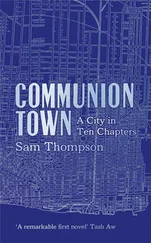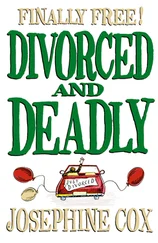Frank Tallis - Deadly Communion
Здесь есть возможность читать онлайн «Frank Tallis - Deadly Communion» весь текст электронной книги совершенно бесплатно (целиком полную версию без сокращений). В некоторых случаях можно слушать аудио, скачать через торрент в формате fb2 и присутствует краткое содержание. Жанр: Исторический детектив, на английском языке. Описание произведения, (предисловие) а так же отзывы посетителей доступны на портале библиотеки ЛибКат.
- Название:Deadly Communion
- Автор:
- Жанр:
- Год:неизвестен
- ISBN:нет данных
- Рейтинг книги:3 / 5. Голосов: 1
-
Избранное:Добавить в избранное
- Отзывы:
-
Ваша оценка:
- 60
- 1
- 2
- 3
- 4
- 5
Deadly Communion: краткое содержание, описание и аннотация
Предлагаем к чтению аннотацию, описание, краткое содержание или предисловие (зависит от того, что написал сам автор книги «Deadly Communion»). Если вы не нашли необходимую информацию о книге — напишите в комментариях, мы постараемся отыскать её.
Deadly Communion — читать онлайн бесплатно полную книгу (весь текст) целиком
Ниже представлен текст книги, разбитый по страницам. Система сохранения места последней прочитанной страницы, позволяет с удобством читать онлайн бесплатно книгу «Deadly Communion», без необходимости каждый раз заново искать на чём Вы остановились. Поставьте закладку, и сможете в любой момент перейти на страницу, на которой закончили чтение.
Интервал:
Закладка:
‘I was right — wasn’t I?’ His voice sounded thin. ‘Death is significant to you.’
‘Death is significant to everyone, Herr doctor. You should appreciate that more than most, by virtue of your profession. Death cures all diseases!’
‘No. I mean personally significant.’ Sprenger’s gaze was steady. ‘Death excites you?’
The undertaker tilted his head and, ignoring Liebermann’s question, asked one of his own.
‘What did you see in my mouth?’
‘A possible defence.’
‘What?’
‘A legal defence. Something that might save you from the gallows: you must have noticed it yourself?’
‘Speak plainly, Herr doctor.’
‘The bluish line that runs along your gums. It is a sign.’
‘Of what?’
‘Lead poisoning. You dye your hair with lead oxide — it has damaged your brain. You are not responsible for your actions. A judge would have to take such evidence into consideration before passing sentence.’
Sprenger laughed.
‘I can assure you that I am completely responsible for my actions. I know exactly what I have done.’
‘You may think that, Herr Sprenger.’
‘I believe I have made my position quite clear with respect to bargains.’
‘Then you will hang.’
‘Perhaps …’ Sprenger took a step forward. Liebermann’s muscles tensed. ‘I would rather face an executioner than spend the rest of my life in a prison cell or — even worse — an asylum for the criminally insane.’
Sprenger took another step.
‘Stay where you are.’
‘Are you frightened of me, Herr doctor?’
Liebermann considered his response carefully.
‘Yes. I am frightened of you.’
Sprenger sighed.
‘“Night is the other half of life, and the better half.”’ It was a quotation from Wilhelm Meister’s Apprenticeship.
‘Are you fond of Goethe?’ Liebermann asked. The question sounded weak — a transparent attempt to engage Sprenger and stall his advance.
The undertaker did not reply. His eyes were fixed on Liebermann. His expression was intense and focused.
Voices — laughter — the sound of cutlery.
Where is it coming from?
Sprenger came forward again. Liebermann raised his hands and took a step backwards.
‘Herr Sprenger. I really must insist that you stay where you are.’
‘“Night is the other half of life, and the better half,”’ Sprenger repeated. His voice was a whisper. Liebermann saw the undertaker’s lips moving, but he produced no sound. He was repeating the sentence to himself, again and again.
Suddenly, Sprenger turned on his heels — and ran for the window.
Liebermann cried out: ‘No!’
Sprenger’s body shattered the glass and dropped from view. When the tinkling had subsided, there was a piercing scream. Liebermann rushed down the hallway. Immediately below the window, hanging from the exterior of the building, was a striped awning. A man dressed in a white shirt and black tails — a waiter — was kneeling beside Sprenger’s body.
Liebermann hurried down the stairs and out into the street. He sprinted towards the coffee house. The people who had been sitting at the tables outside were standing up and looking at Sprenger, aghast. A woman with a large floral hat was sobbing against the shoulder of a male companion.
‘I’m a doctor,’ said Liebermann, dropping to his knees and clutching Sprenger’s wrist. At first he thought he was imagining it, the sluggish, feeble beat. But it was definitely there. Sprenger had survived the fall.
49
Rheinhardt was sitting in Liebermann’s office at the General Hospital feeling tired and extremely hungry. He took the Luger pistol from his pocket and studied its construction: the long barrel, the crescent trigger and elegant handgrip.
A perfect example of the gun manufacturer’s craft.
Yet even with such a finely balanced weapon he had missed Sprenger — twice.
Rheinhardt did not feel shame when he reflected on his inadequate marksmanship but rather a sense of relief, for he knew that if he had hit his mark he would — at that moment — be feeling quite different. He would not be looking forward to his bed, the warmth of his wife’s body, and a swift descent into untroubled, restorative sleep. Instead, he would be contemplating the night ahead with trepidation: a long night, sitting in the darkness, smoking and ruminating — wrestling with his conscience. Liebermann often spoke of unconscious motivation. Had some hidden part of his mind interfered with his aim? He was too weary to tackle such an esoteric question. His stomach was gurgling and for Rheinhardt hunger precluded thought. The feeling of emptiness, the nagging hollow at the very centre of his being, was too distracting. He put the Luger back into his pocket and wondered if he would be able to get to Cafe Eiles before it closed.
Rheinhardt opened one of Liebermann’s drawers and examined the contents: a formulary, a pen and a stethoscope.
But no biscuits …
The door opened and Liebermann entered.
‘What are you doing?’
‘Looking for something to eat.’
‘Well, you won’t find anything in there. This may come as a surprise to you, Oskar, but not everyone keeps a store of Linzer biscotten among their work things.’
Rheinhardt closed the drawer and leaned back in his chair.
‘Well?’
‘His condition is stable.’
‘Will he live?’
‘Professor Bieler is very optimistic.’
‘I suppose that qualifies as good news.’ Rheinhardt folded his arms across his stomach. ‘The people of Vienna would have felt cheated if Sprenger had succeeded in his bid to evade justice.’
‘They might still be denied.’
‘You are thinking of the lead oxide …’
‘It is something the court must consider.’
‘Surely, Max, you cannot believe that Sprenger was driven to perform his atrocities by his hair dye! Not every individual unfortunate enough to suffer from lead poisoning then takes it upon himself to kill for sexual gratification!’
‘The brain is complex — and poisons may have effects that vary from individual to individual. It is not inconceivable.’
‘Are there any other cases similar to Sprenger’s that you know of?’
‘No. However, there are some historians who have posited a theory that the Roman Empire fell not because of the incursion of the barbarian hordes but because of a generalised insanity resulting from the widespread use of lead pipes and kitchenware. I suspect that the foundations of Sprenger’s thanatophilia were laid in his childhood and that the lead poisoning exacerbated his existing psychopathology.If so, then the poisoning might represent a mitigating factor. I would be more than happy to prepare a medical report.’
Rheinhardt narrowed his eyes.
‘I think you’re pleased to have him here.’
‘I wouldn’t say pleased, exactly.’
‘What, then? You are not displeased.’
‘I am grateful that I have been afforded an opportunity to satisfy my professional curiosity.’
‘Psychiatrists,’ said Rheinhardt, shaking his head. ‘At what point do you baulk at the study of perversity and madness? Do you never think that some things are so dreadful — so appalling — that they should simply be left alone?’
‘It is always better to understand than not.’
The inspector had heard Liebermann’s pithy dictum many times before.
‘Are you so sure?’ Rheinhardt looked troubled. ‘Sometimes I wonder whether some minds are so deranged that nothing useful can come out of their study. Krafft-Ebing’s Psychopathia Sexualis has sold in thousands of copies and because it is a scientific work respectable gentlemen read it without scruple. Yet do they really read those cases — page after page of horror, sickness, and moral degeneracy — to improve their understanding of mental illness? I think not. They read the Psychopathia Sexualis because it is sensational and it arouses in them a dubious prurient excitement.’
Читать дальшеИнтервал:
Закладка:
Похожие книги на «Deadly Communion»
Представляем Вашему вниманию похожие книги на «Deadly Communion» списком для выбора. Мы отобрали схожую по названию и смыслу литературу в надежде предоставить читателям больше вариантов отыскать новые, интересные, ещё непрочитанные произведения.
Обсуждение, отзывы о книге «Deadly Communion» и просто собственные мнения читателей. Оставьте ваши комментарии, напишите, что Вы думаете о произведении, его смысле или главных героях. Укажите что конкретно понравилось, а что нет, и почему Вы так считаете.












